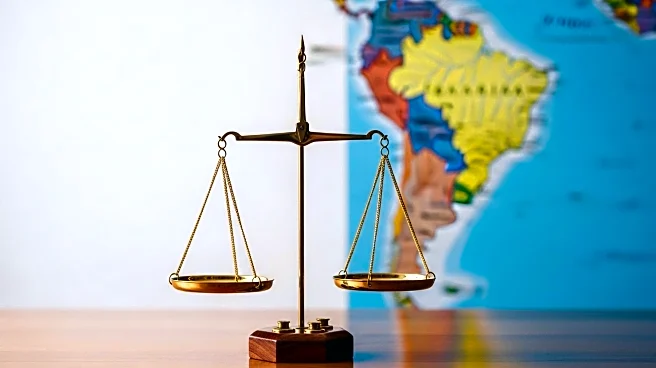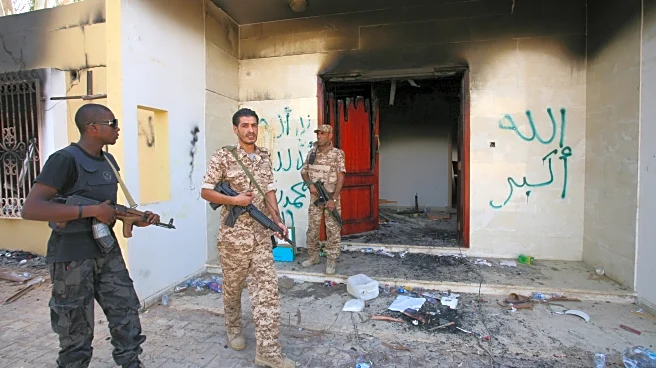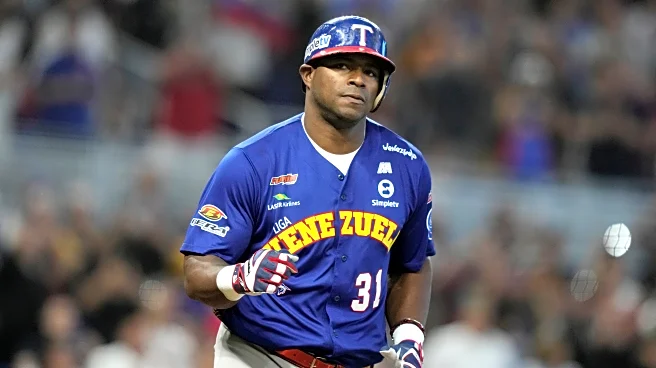What's Happening?
A significant number of former Latin American leaders are facing legal challenges, with Brazil's former President Jair Bolsonaro recently sentenced to over 27 years in prison for attempting to overturn the 2022 election. This trend is not isolated, as many former presidents across the region, including those from Peru, Colombia, Ecuador, and Argentina, have been investigated or convicted for various offenses, primarily related to corruption. Uruguay stands out as an exception, with no former presidents facing legal charges, attributed to its political culture of respect for public resources.
Why It's Important?
The prevalence of legal issues among former Latin American leaders highlights systemic corruption and governance challenges in the region. This situation affects political stability and public trust in institutions, potentially hindering economic development and democratic processes. The concentration of power in presidential systems is seen as a contributing factor, leading to increased opportunities for corruption. The situation underscores the need for stronger institutional frameworks and transparency to combat corruption and restore public confidence.
What's Next?
As legal proceedings continue, the region may see further political upheaval, with potential impacts on upcoming elections and governance. The ongoing investigations could lead to more convictions, influencing political dynamics and public perception. Efforts to strengthen democratic institutions and reduce corruption will be crucial in shaping the future political landscape of Latin America.
Beyond the Headlines
The use of 'lawfare,' or legal actions to silence political opponents, complicates the situation, as it can undermine legitimate oversight and accountability. This tactic raises concerns about the misuse of judicial processes for political gain, potentially eroding trust in the legal system and democratic institutions.










